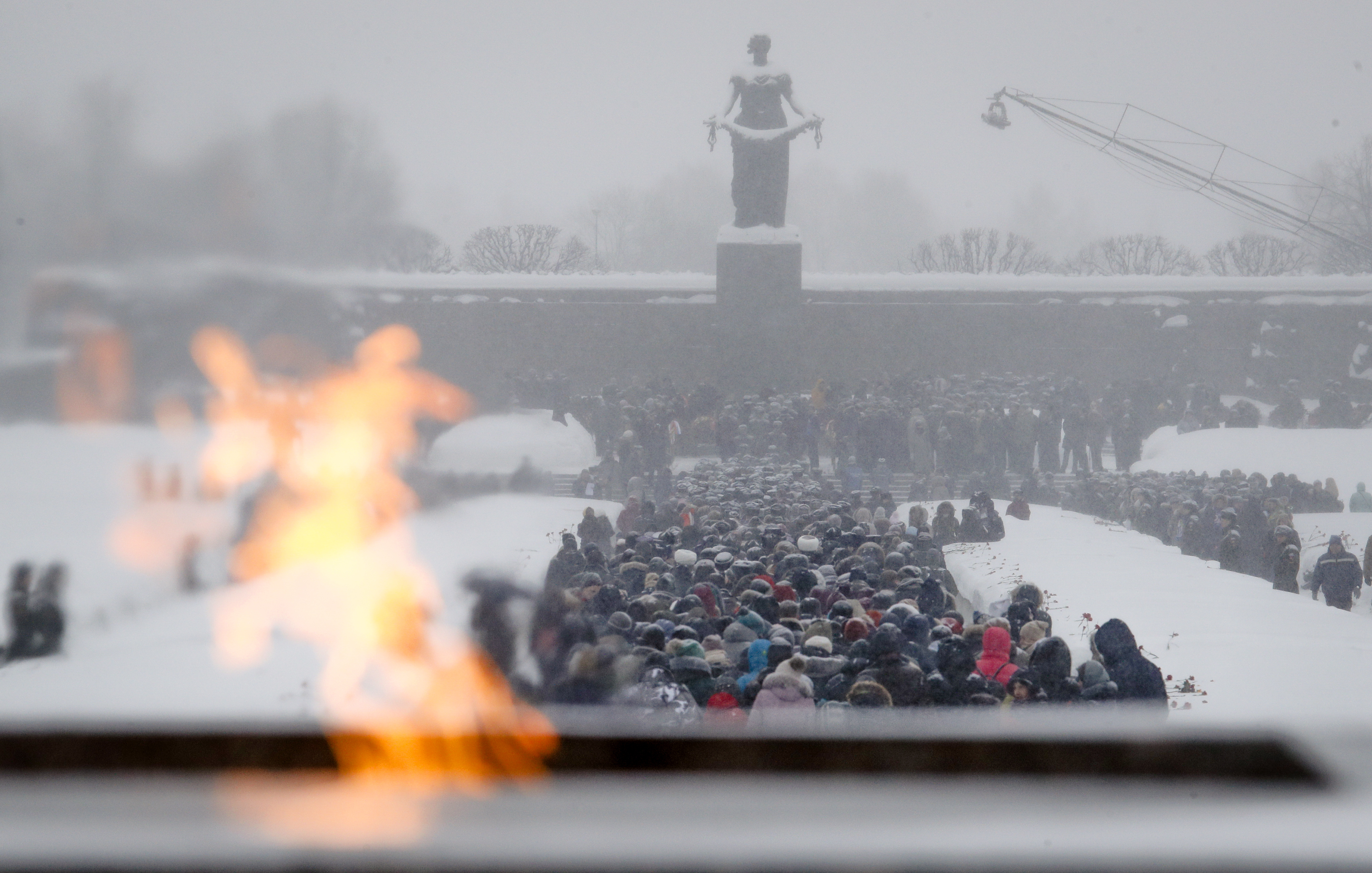
Russian parade marks 75 years since WWII siege of Leningrad
ST. PETERSBURG, Russia (AP) — The Russian city of St. Petersburg marked the 75th anniversary of the end of the devastating World War II siege by Nazi forces with a large military parade Sunday in the city’s sprawling Palace Square.
Russian President Vladimir Putin later laid flowers at a monument in Piskarevskoye Cemetery, where hundreds of thousands of siege victims are buried.
The siege of the city, then called Leningrad, lasted nearly 2½ years until the Soviet Army drove the Nazis away on Jan. 27, 1944.
Estimates of the death toll vary, but historians agree that more than 1 million Leningrad residents died from hunger or air and artillery bombardments during the siege.
On Sunday, more than 2,500 soldiers and 80 units of military equipment paraded as snow fell and temperatures hovered around minus-18 degrees Celsius (0 Fahrenheit). The vehicles included a T-34 tank; such tanks played a key role in defeating the Nazis and became a widely revered symbol of the nation’s wartime valor and suffering.
During the siege, most Leningrad residents had to survive on rations of just 125 grams (less than 0.3 pounds) of bread a day and whatever other food they could buy or exchange at local markets after selling their belongings.
Among those who succumbed to the deprivations of the siege was Putin’s 1-year-old brother. Putin himself was born after the siege, in 1952.
The Russian president did not attend the parade, which some civic groups had objected to as inappropriate, saying the day should commemorate the victims rather than flaunt military strength.
The Kremlin also announced Sunday that Putin had signed an order allocating 150 million rubles ($2.3 million) for creating new exhibits at the state museum of the siege.
“Today we mourn those who died defending Leningrad, who at the cost of their lives broke through the blockade. We recall those who worked in the besieged city, who, risking themselves, delivered bread and medicine along the Road of Life,” Prime Minister Dmitry Medvedev wrote on social media.
Medvedev was referring to the ice road across Lake Ladoga that was the only conduit for supplies and evacuations during much of the siege.
Tamara Chernykh, 81, told The Associated Press that she still can’t forget the tiny pieces of bread that her granny used to put under her pillow as a night treat for a starving four-year-old girl in besieged Leningrad during the deadly winter of 1941-1942.
In the daytime, Chernykh said she and her baby cousin mostly stayed put under several blankets in the darkness. There was no heating during the first and the coldest winter of the siege, when temperatures outside sometimes plunged to -40 degrees Celsius (-40 degrees Fahrenheit).
Chernykh’s grandmother, who gave the bread out of her own scant food ration, said the crumbs would bring good dreams. She died from starvation before the siege ended.
Germany has allocated 12 million euros ($13.5 million) to modernize a Russian hospital for veterans of the war and to create a center in St. Petersburg where Germans and Russians can meet, the German and Russian foreign ministers said Sunday.
“We are sure that this voluntary action will improve the life quality of the victims of the siege who are still alive and also serve the historical reconciliation of the peoples of both countries,” ministers Heiko Maas and Sergey Lavrov said in the statement.
The Western Journal has not reviewed this Associated Press story prior to publication. Therefore, it may contain editorial bias or may in some other way not meet our normal editorial standards. It is provided to our readers as a service from The Western Journal.
Truth and Accuracy
We are committed to truth and accuracy in all of our journalism. Read our editorial standards.
Advertise with The Western Journal and reach millions of highly engaged readers, while supporting our work. Advertise Today.












